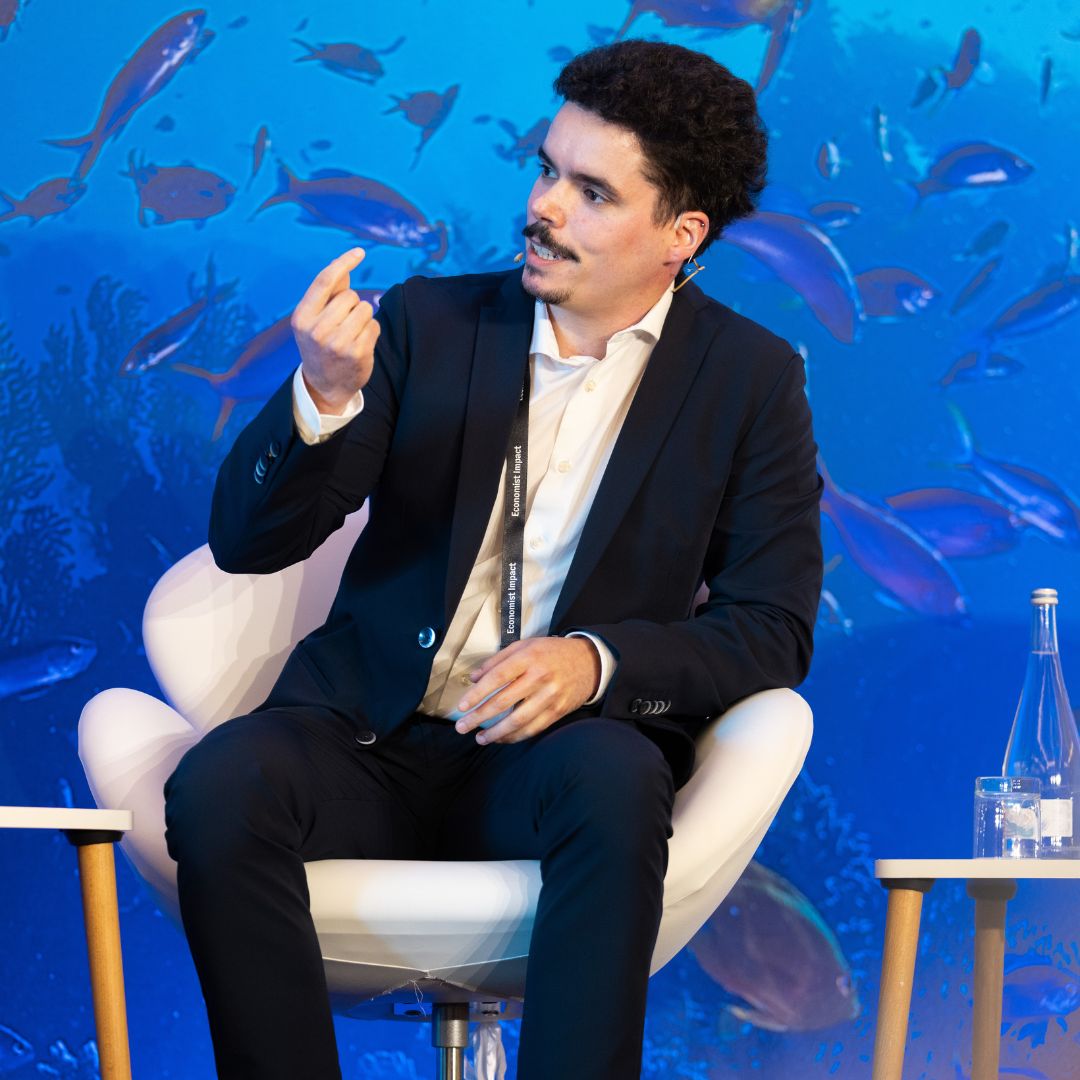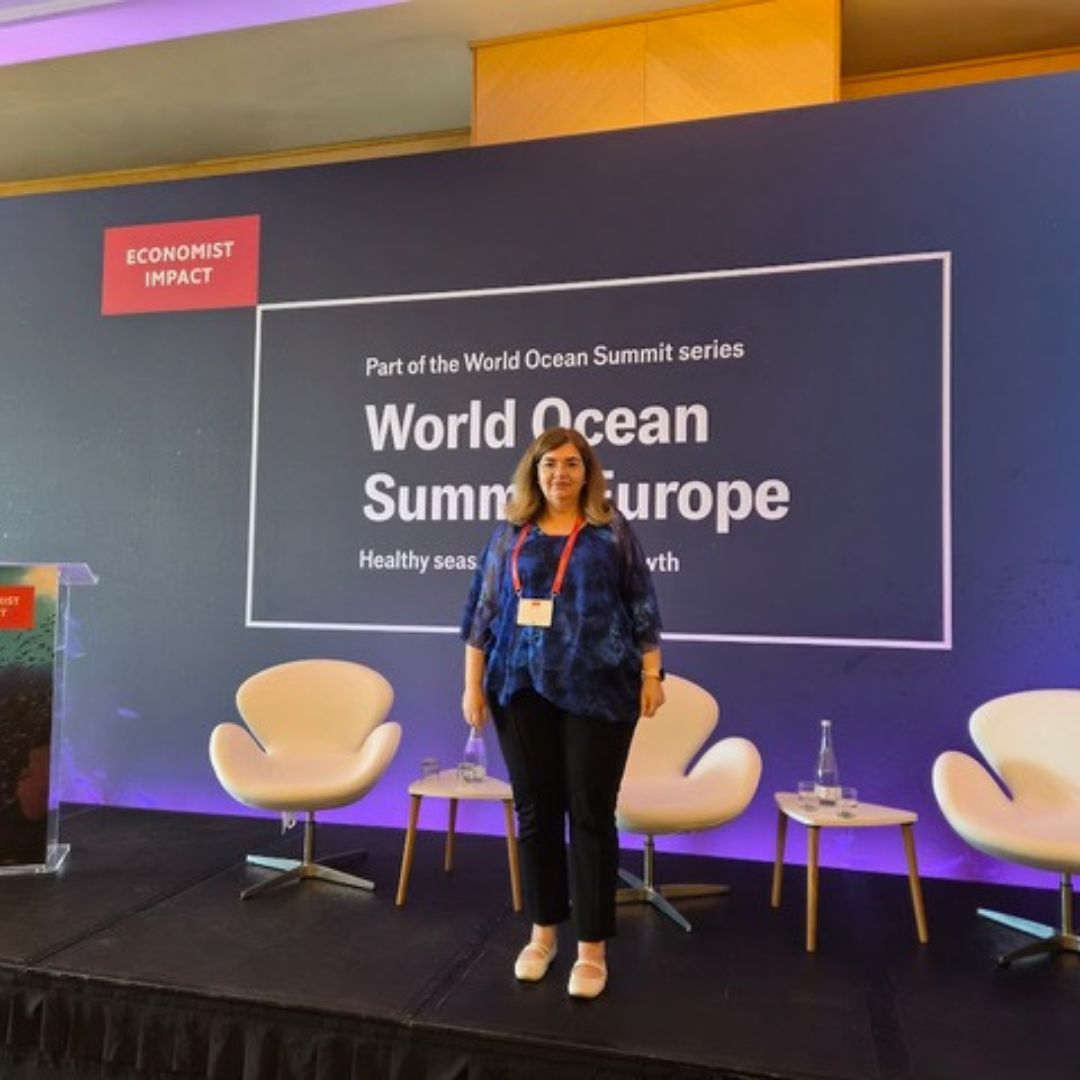MARE researchers attend World Ocean Summit Europe.
MARE researchers Sónia Seixas and João Pequeno attended the World Ocean Summit Europe, which took place on September 9 in Cascais. Organized by The Economist, this conference featured 57 speakers and more than 300 delegates registered for 24 sessions throughout the day.
Researcher Sónia Seixas participated in the conference on behalf of MARE and Universidade Aberta, where she has been a professor since 1995.
João Pequeno issued a clear challenge to decision-makers and industries: abandon voluntary promises and make circularity measurable and binding. In the panel “Catalysing circularity and compliance to curb Europe's ocean plastics crisis” (moderated by Dominic Ziegler, editor of The Economist), with the participation of Dr. Xenia Loizidou (ISOTECH) and Fahrana Lubis (Oceva Indonesia), the researcher and volunteer at the Portuguese Marine Litter Association (APLM) highlighted four priorities: mandatory eco-design rules and recycled content requirements for products; limits or reductions (“phase-down”) in plastic production where appropriate; an extended producer responsibility (EPR) scheme that works in practice and goes beyond marketing and greenwashing; and harmonized, continuous, and independent monitoring of leaks and the impacts of plastic pollution on marine ecosystems.
João Pequeno also warned of the need for caution regarding bioplastics and “biodegradable” materials: innovations only bring real benefits if they are independently validated throughout their entire life cycle—including the impacts of chemical additives and fragmentation into micro- and nanoplastics—and if they prove to degrade under local waste management conditions. Otherwise, they can become “new plastics” with new problems.
On the global framework, he stressed that Europe should not wait passively for the UN Global Plastics Treaty, whose ambition and effectiveness are, in his opinion, uncertain, and that it is necessary to move forward now with robust regional and national measures. “It is urgent to make circularity binding, accompanied by adequate financing and waste management systems, which will ultimately result in less plastic in the environment,” he concluded.
Text by Patrícia Carvalho


